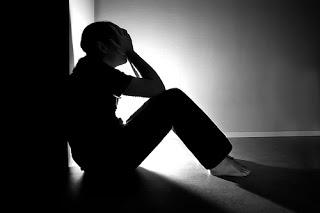 In August this year South Korea's constitutional court upheld a 59 year long ban on having abortions. South Korea banned abortion in 1953 with exceptions for rape, incest or severe genetic disorders.
In August this year South Korea's constitutional court upheld a 59 year long ban on having abortions. South Korea banned abortion in 1953 with exceptions for rape, incest or severe genetic disorders. This may come as a surprise for anyone living in Korea who keeps their eyes and ears open. With my close connections in Korea I have known a number of Korean women of varying ages who have had abortions.
This week abortion hit the headlines with a case of an Indian woman in Ireland who was refused an abortion despite being in severe pain from the pregnancy. She later died of septicemia brought on by an obviously invalid pregnancy. So are Korean attitudes to abortion similar to those in Ireland, a country which has the same laws against abortion? The answer is that, strangely, despite the similarity in guidelines, the two countries are poles apart.
Abortions in Korea take place in hospitals and apparently sometimes without anesthetic because hospitals have to register each time they use it, and since abortion is supposed to be illegal they do not want to do this.
The most shocking thing about abortion in Korea, however, appears to be the flippancy and the ease with which it is undertaken, made even more surprising because it is against the law.
UN statistics estimate abortions to run at about 20 per 1000 births in Korea, which is exactly the same as the US (there must be a lot of rape, incest and/or genetic disorders in Korea as abortion is legal in most of the US), but in Korea many abortions go unreported. I would shudder to think of the actual figures; this is a problem that could be getting out of hand. The behind closed doors and prudish nature of the Korean people towards sex could also be causing a lack of knowledge in the family planning department. Fear of family reactions to news of an unwanted pregnancy or a pregnancy before marriage may also push young people to have abortions in secret.
 Back in England I had known a few people who had abortions and it literally wreaked havoc to their mental health, causing some level of depression in everyone I had known to have the procedure. The women I knew who had abortions were guilt-ridden and clearly emotionally damaged by the whole experience. What I have seen in Korea does not match the consequences of abortion that I saw in England.
Back in England I had known a few people who had abortions and it literally wreaked havoc to their mental health, causing some level of depression in everyone I had known to have the procedure. The women I knew who had abortions were guilt-ridden and clearly emotionally damaged by the whole experience. What I have seen in Korea does not match the consequences of abortion that I saw in England.The process itself is obviously never an easy experience and as a man, and someone who has not experienced it through a partner, I cannot comment on the procedure itself but I cannot imagine it is pleasant.
But it is not so much the speed of the physical recovery that is shocking but the mental recovery and the relative ease with which some of the Korean women, and their partners I have heard about, come to their decision. Sometimes the reasons for their abortions have seemed of mere inconvenience rather than a genuine problem of bringing up the child.
Being a non-religious man and erring slightly liberal in my political opinion, I am actually in favour of pro-choice and not of a ban on abortions generally, but it still troubles me when it looks like such an important decision is taken without too much due care and attention and appears to not overly perturb the person in question.
Of course, it should not be a surprise that Koreans do not follow this law banning abortions. Korean people are regularly quite selective with the supposed requirements of their government. Think of traffic laws (as I have said before there must be some), employment laws - such as those requiring Koreans to work no more than 40 hours a week unless they are paid overtime (there is a loophole that says maybe 52 hours but they even exceed that) - and rules on dog meat which Korean Food Sanitary Law states is an illegal food ingredient and the Seoul Metropolitan government categorizes as 'repugnant food'. All of these rules and regulations are flouted everyday in plain view of anyone who cares to look and not bury their heads in the sand.
It is the social attitude towards it all, though, that is most disturbing of all. To my eyes it is as clear as day that the value and sanctity of life is not as high here, whether it be human or animal. This also includes the care and treatment people and non-humans receive during life and not in matters of just life and death.
 For another example of this, I needed to not look any further than my own Korean family. My uncle in-law used to have two Jindo dogs (a famous and traditional Korean breed) for a number of years. While they were alive they were rarely if ever let off the short leash that they were tied to outside their house in all weather (it can get seriously cold in Korea in winter). The younger dog would still get excited when anyone came near, desperate for attention, but for the older dog it did seem that his life had broken him and taken away all of his spirit. To make a sad story even sadder still, I went to the house for dinner a couple of months ago and the dogs were not there, they had both been sold to the dog meat trade.
For another example of this, I needed to not look any further than my own Korean family. My uncle in-law used to have two Jindo dogs (a famous and traditional Korean breed) for a number of years. While they were alive they were rarely if ever let off the short leash that they were tied to outside their house in all weather (it can get seriously cold in Korea in winter). The younger dog would still get excited when anyone came near, desperate for attention, but for the older dog it did seem that his life had broken him and taken away all of his spirit. To make a sad story even sadder still, I went to the house for dinner a couple of months ago and the dogs were not there, they had both been sold to the dog meat trade.Can we seriously think that people would do the same to a pet in the West? There are obviously cases of abuse but these are among the poor, the uneducated, and the trouble-makers in our societies. In the case of my uncle in-law and his family they are a perfectly pleasant and nice Korean family in every other respect. It is clear that this is a cultural attitude and not a case of a few rotten eggs, that's the difference. A further reason for thinking this way was because of the amount of students I have taught who had dogs in the past but told of how their parents had sold them for dog meat also.
The case of Koreans eating dogs is old hat and to be fair not many people do it anymore, but it has always been the treatment of them that has aggravated me more. They too often display a callous lack of respect for the animal's life and I believe this also shows in their attitudes towards abortion.
Bring up the issue of dogs around a Korean and they often point to the hypocrisy the West shows towards animals, after all we keep pigs (and other animals) in small pens and kill them, with the average pig life having vastly more suffering than a pet dog in Korea. They are in a way correct, but whilst logically I must agree, I have a moral intuition that there really is something special about a dog. We have had a faithful partnership with them for thousands of years and it shows in how we dote on them and vice versa. It feels like the betrayal of a trusted friends and I feel this guilt on behalf of everyone that does not care about their welfare.
The same argument can be made with abortion. I recognize, and agree with the views of people like Peter Singer who draw a comparison between abortions and killing animals for meat. He says that a cow, for example, will suffer far more than an unborn fetus with a nervous system that is not fully developed. Therefore, if we are so concerned about a fetus we should be, in fact, more concerned about the cow. Again, there is great logic in this and perhaps he is 100% right and that it is just because we all merely favour our own species, but I have a niggling sense inside that we should not be so frivolous with the unborn, and abortions, although allowed, should be as a last resort with all the alternatives carefully considered. This is not the feeling I get from many of the people I have talked to and learned about in Korea, who must for obvious reasons remain anonymous.
Of some of the older Korean women I have knowledge of, some have had multiple abortions and although I have obviously no idea what is going on inside their heads, I don't sense that much remorse in them, at least certainly not on the level that I could see in women in England.
 Of course, you could throw the argument on its head by saying that we in the West are too caught up with the issue of the sanctity of human life. The West has a Christian tradition and even if people are atheists like me, much of our moral intuitions are shaped by almost 2000 years of Christian culture. Before the Christians, infanticide was a common cultural practice in ancient Greece and Rome, where parents would leave their sometimes only slightly disabled children on hilltops to die of exposure or even throw them off of cliffs. This wasn't done because they had no heart or moral sense - indeed the Greeks, especially, had a famous and solid grasp of morals that was much ahead of their time - they simply had a different cultural philosophy.
Of course, you could throw the argument on its head by saying that we in the West are too caught up with the issue of the sanctity of human life. The West has a Christian tradition and even if people are atheists like me, much of our moral intuitions are shaped by almost 2000 years of Christian culture. Before the Christians, infanticide was a common cultural practice in ancient Greece and Rome, where parents would leave their sometimes only slightly disabled children on hilltops to die of exposure or even throw them off of cliffs. This wasn't done because they had no heart or moral sense - indeed the Greeks, especially, had a famous and solid grasp of morals that was much ahead of their time - they simply had a different cultural philosophy. In Christianity, the church ingrained a special value upon human life, even from the moment of conception which puts an extremely high value on all life. This high value might seem a wonderful thing, but has consequences itself in stopping us from ending lives (even our own) when a high degree of suffering is making life not worth living, and obstructing possible life saving (and life improving) scientific research, such as that done using human stem cells.
 Korea does not have a Christian history imprinted on the cultural make up, it has a Confucian tradition which values social harmony and the group. With this way of thinking, individuals are not necessarily special, it is the group that comes first. Under this line of thought it is therefore understandable to me how it might be easier for some Korean people to handle abortions with less emotional importance.
Korea does not have a Christian history imprinted on the cultural make up, it has a Confucian tradition which values social harmony and the group. With this way of thinking, individuals are not necessarily special, it is the group that comes first. Under this line of thought it is therefore understandable to me how it might be easier for some Korean people to handle abortions with less emotional importance. There are obviously Korean people and indeed Western people who reject or accept certain parts of their cultures to greater and lesser degrees and this is not applicable to everyone, but the pattern of behavior cannot go unnoticed.
I am not a fan of Christianity and think we need to move on from it more quickly than we are doing, but it did give us this important sense of value of life, which although needs tweaking a little, is nonetheless quite precious. Maybe, however, we could do with meeting Korean culture somewhere in the middle and perhaps the guilt experienced by many women from abortion is really quite unnecessary, a hangover from deep lessons of Christian inspired history and while abortion should never be taken lightly it could be thought of a little less gravely than it is currently in the West.
